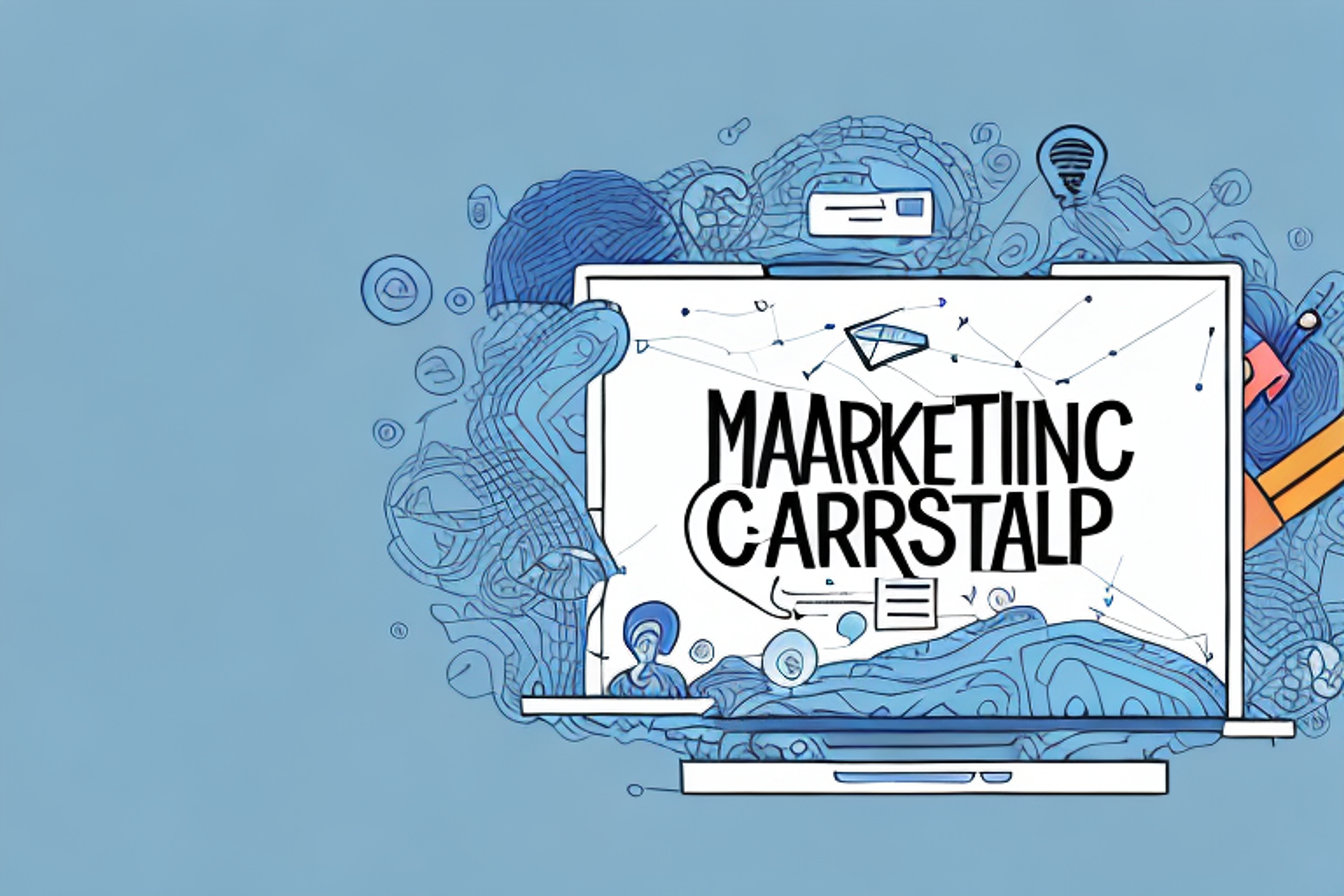
Table of Contents
Marketing is a dynamic field that offers a wide range of career opportunities for individuals who are creative, analytical, and excellent communicators. However, getting into the marketing scene can be intimidating, especially if you're just starting out. In this article, we'll provide you with insider tips and tricks on how to break into the marketing industry and achieve success.
Understanding the Basics of Marketing: A Beginner's Guide
Before delving into the specifics of how to get into the marketing scene, it's important to have a clear understanding of what marketing entails. Marketing is the process of creating, promoting, and distributing goods or services to meet the needs and wants of customers. It involves conducting market research, identifying target audiences, developing marketing strategies, and measuring the effectiveness of those strategies. As a beginner, it's essential to learn the fundamentals of marketing to be able to excel in the field.
One important aspect of marketing is understanding the different channels through which you can reach your target audience. These channels can include social media, email marketing, search engine optimization, and advertising. Each channel has its own unique advantages and disadvantages, and it's important to understand how to effectively utilize each one to maximize your marketing efforts. Additionally, staying up-to-date with the latest marketing trends and technologies can give you a competitive edge in the industry.
In-Demand Skills for a Successful Marketing Career
Marketing is a competitive industry, and to succeed, you must possess a unique set of skills. Some of the most in-demand skills in marketing include:
- Excellent communication and interpersonal skills
- Strong analytical and critical thinking abilities
- Creativity and the ability to develop innovative marketing strategies
- Proficiency in digital marketing tools and technologies
- Attention to detail and the ability to multitask effectively
Developing these skills through education, training, and hands-on experience is critical to breaking into the marketing scene and building a successful career.
Another important skill for a successful marketing career is adaptability. The marketing industry is constantly evolving, and marketers must be able to adapt to new technologies, trends, and consumer behaviors. This requires a willingness to learn and a proactive approach to staying up-to-date with industry changes.
Additionally, a strong understanding of data analysis and metrics is becoming increasingly important in marketing. Marketers must be able to measure the effectiveness of their campaigns and make data-driven decisions to optimize their strategies. This requires proficiency in tools such as Google Analytics and the ability to interpret and communicate data effectively.
The Importance of Networking in the Marketing Industry
Networking is a vital component of success in the marketing industry. Building relationships with peers, mentors, and industry leaders can help you learn about new opportunities, gain valuable insights, and enhance your career prospects. Attend industry events, participate in online forums, and join professional organizations to expand your network and build meaningful connections.
Additionally, networking can also lead to collaborations and partnerships with other professionals in the industry. By working together, you can combine your skills and expertise to create innovative marketing campaigns and strategies that can benefit both parties. Furthermore, networking can also help you stay up-to-date with the latest trends and technologies in the industry, which can give you a competitive edge in the job market.
Finding Your Niche in Marketing: Choosing Your Specialization
Marketing is a broad field with many different specializations. To maximize your chances of success, it's essential to identify your niche and specialize in that area. Some of the popular marketing specializations include:
- Digital Marketing
- Brand Management
- Public Relations
- Market Research
- Advertising
- Content Marketing
Identifying your niche allows you to focus your efforts on developing the skills and expertise necessary to excel in your chosen field.
One important factor to consider when choosing your marketing specialization is your personal interests and strengths. If you have a passion for writing and storytelling, content marketing may be the perfect fit for you. On the other hand, if you enjoy analyzing data and trends, market research may be a better option.
Another consideration is the job market and demand for your chosen specialization. While some areas may be more competitive, others may have a higher demand for skilled professionals. It's important to research and stay up-to-date on industry trends and job opportunities in your chosen field.
Leveraging Social Media for Personal Branding and Networking
Social media is a powerful tool for personal branding and networking. It allows you to showcase your skills and expertise, connect with industry professionals, and build your personal brand. Develop a strong social media presence by sharing content, engaging with followers, and contributing to industry conversations.
One of the key benefits of social media for personal branding is the ability to reach a wider audience. By using relevant hashtags and sharing your content on multiple platforms, you can increase your visibility and attract new followers. This can lead to new opportunities and collaborations, as well as help you establish yourself as a thought leader in your industry.
However, it's important to remember that social media can also have its downsides. It's easy to get caught up in the numbers game and focus solely on increasing your followers and likes. But it's important to prioritize quality over quantity and focus on building genuine connections with your audience. This means engaging with your followers, responding to comments and messages, and sharing valuable content that resonates with your target audience.
Building a Strong Online Presence: Creating a Personal Website and Portfolio
In addition to social media, having a personal website and portfolio is key to breaking into the marketing industry. Your website and portfolio should showcase your skills, achievements, and experience, and demonstrate your ability to solve marketing problems. Use your website to create a personal brand and communicate your unique value proposition to potential employers.
When creating your personal website and portfolio, it's important to keep in mind the user experience. Make sure your website is easy to navigate and visually appealing. Use high-quality images and graphics to showcase your work and make sure your website is mobile-friendly.
Another important aspect of building a strong online presence is networking. Use your website and portfolio to connect with other professionals in the industry and showcase your work to potential clients. Attend industry events and conferences to meet new people and expand your network.
Creating a Standout Resume and Cover Letter for Marketing Jobs
Your resume and cover letter are the first impression you'll make on potential employers. To stand out from other candidates, your resume and cover letter should highlight your experience, skills, and achievements in a clear and concise manner. Tailor your resume and cover letter to each job you apply for, and use keywords and phrases that align with the job requirements.
In addition to highlighting your experience and skills, it's important to showcase your creativity and marketing expertise in your resume and cover letter. Consider including examples of successful marketing campaigns you've worked on, or any relevant certifications or training you've completed. Don't be afraid to think outside the box and use unique formatting or design elements to make your application stand out.
Preparing for Marketing Interviews: Common Questions and Best Practices
Preparing for marketing interviews is essential to land the job you want. Research the company and industry, practice answering common marketing questions, and prepare responses to specific job-related scenarios. During the interview, demonstrate your communication, critical thinking, and problem-solving skills.
It is also important to showcase your creativity and ability to think outside the box during marketing interviews. Be prepared to discuss any successful marketing campaigns you have worked on in the past and how you contributed to their success. Additionally, be ready to provide examples of how you have used data and analytics to inform your marketing strategies and decision-making. Remember to also highlight your passion for marketing and your willingness to learn and adapt to new trends and technologies in the field.
Gaining Experience in Marketing: Internships, Freelancing, and Volunteer Opportunities
Experience is crucial to breaking into the marketing scene. Consider internships, freelancing, or volunteering to gain hands-on experience and learn about different areas of marketing. These experiences not only help you build skills and experience but also allow you to expand your network and make valuable connections.
Continuing Education in Marketing: Certifications and Advanced Degrees
Continuing education is crucial to staying competitive in the marketing industry. Consider pursuing certifications or advanced degrees in marketing or related fields. These can help you develop new skills, enhance your credibility, and increase your earning potential.
Staying Up-to-Date on the Latest Trends and Technologies in Marketing
Marketing is a rapidly evolving field, and staying up-to-date on the latest trends and technologies is essential to stay competitive. Attend industry events, read marketing blogs and publications, and follow industry leaders on social media to stay current on the latest news and insights.
Conclusion
Breaking into the marketing scene requires determination, dedication, and a willingness to learn and grow. With the tips and tricks outlined in this article, you can position yourself for success, build your skills and experience, and establish yourself as a leader in the field.











